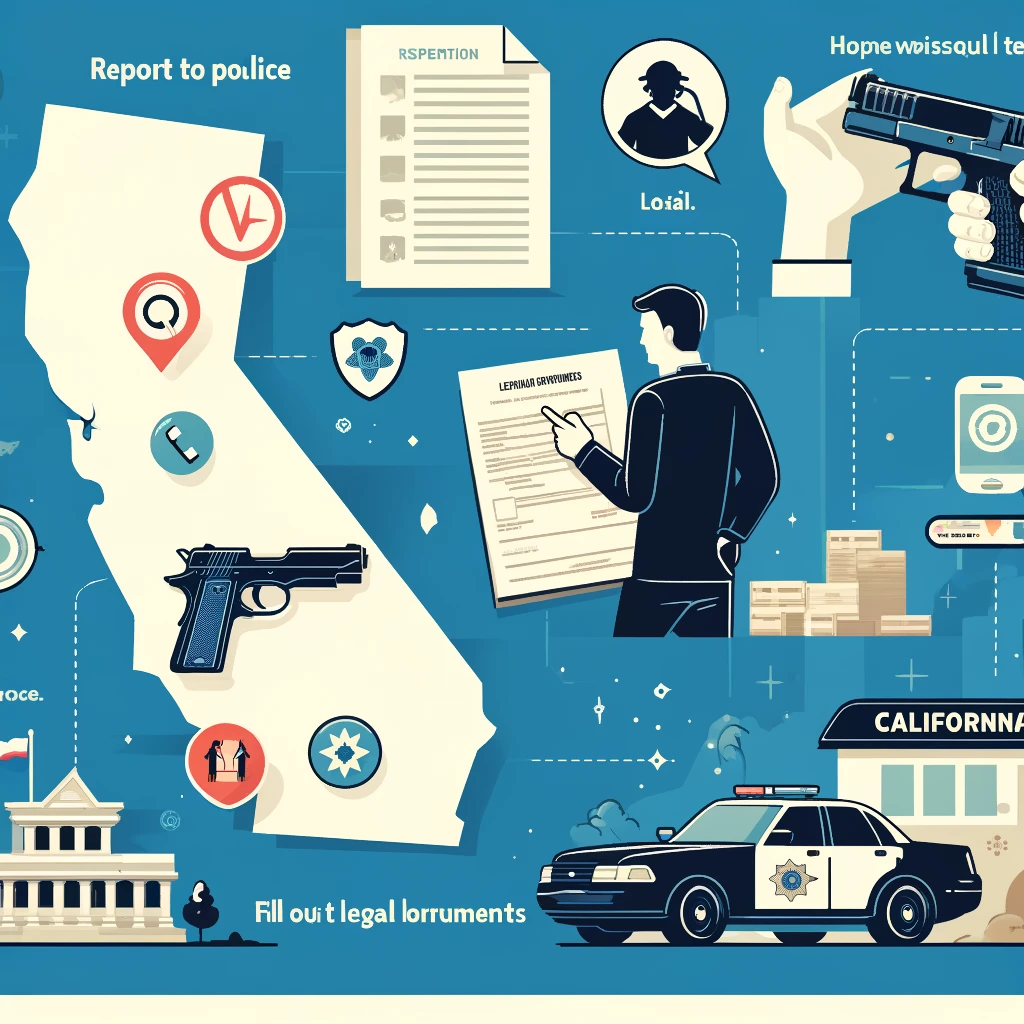Lost or stolen firearms are a growing concern, especially given the potential public safety risks associated with unaccounted weapons. In California, lawmakers have enacted specific legislation outlining the legal responsibilities of gun owners when a firearm is lost or stolen. These laws aim to help authorities track down missing guns and prevent their misuse, while also holding firearm owners accountable for their property.
In the Golden State, reporting procedures for lost or stolen firearms require individuals to notify the local law enforcement agency within the jurisdiction where the loss or theft occurred. This is a mandatory step as stipulated by California law, which states that the report must be made within five days of discovering or reasonably suspecting the loss or theft. Failure to comply with this legal obligation can lead to legal repercussions, including potential criminal charges.
To properly adhere to these legal responsibilities, it is of utmost importance for firearm owners to be aware of the reporting procedures and related regulations. Safeguarding firearms and promptly reporting any incidents can contribute to the overall well-being of California communities. Individuals facing gun-related legal issues can seek professional assistance from an experienced gun crime lawyer in Santa Ana, who can provide valuable guidance on navigating the complexities of California firearms laws.
Understanding the Legal Framework
California Penal Code and Proposition 63
Under California law, individuals are required to report the loss or theft of a firearm within five days of the time they knew or reasonably should have known about the incident. This regulation, found in the California Penal Code Section 25250, applies to the owner or possessor of the firearm. Failure to report can result in penalties and legal consequences.
In addition to the penal code, Proposition 63 was passed in California to further strengthen gun laws. This state-level legislation includes measures such as:
- Mandatory background checks for ammunition purchases
- Requiring the reporting of lost or stolen firearms
- Enhancing penalties on convicted firearms traffickers
While California’s firearm reporting laws are among the strictest in the nation, it is crucial to understand how federal regulations also play a role.
Federal Regulations and ATF Involvement
At the federal level, the Bureau of Alcohol, Tobacco, Firearms, and Explosives (ATF) provides guidance on reporting lost or stolen firearms. This government agency is responsible for enforcing federal gun laws and offering support to state and local law enforcement agencies.
In the United States, there is no federal law requiring civilian gun owners to report lost or stolen firearms. However, Federal Firearms Licensees (FFLs) – such as gun dealers, manufacturers, and importers – are required to report such incidents to the ATF within 48 hours of discovery. This regulation is designed to help law enforcement officials track and investigate illegal firearms trafficking.
Furthermore, the ATF has published model legislation to assist states in crafting their own laws for reporting lost or stolen firearms. This guidance aims to reduce gun violence and improve public safety by encouraging timely reporting, which in turn helps law enforcement identify patterns and develop investigative leads.
By understanding the legal framework surrounding lost or stolen firearms in California including both state-level regulations and federal oversight by the ATF – individuals can better grasp their responsibilities and the necessary steps to comply with the law.
Reporting and Compliance Procedures
In California, there are specific legal requirements and procedures set forth by the state to report lost or stolen firearms. This section will discuss the immediate action steps to be taken as well as address the repercussions of non-compliance.
Immediate Action Steps for Lost or Stolen Firearms
If a firearm is lost or stolen, the owner must report the incident to a local law enforcement agency in the jurisdiction where the theft or loss occurred. According to California Penal Code Section 25250, this report must be made within five days of the time the owner knew or reasonably should have known about the loss or theft. The report should include the following information:
- Description of the firearm
- Serial number
- Circumstances of the loss or theft
- License and registration information of the firearm owner
After reporting to the local law enforcement agency, the owner must also contact the ATF’s Stolen Firearms Program Manager and complete the Theft/Loss Report Form (ATF Form 3310.11) to detail all missing firearms.
Repercussions of Non-Compliance
Failure to report a lost or stolen firearm within the specified time frame may result in various legal consequences. Those who do not comply with the Section 25250 requirements can face fines and possible misdemeanor charges. Additionally, the California Department of Justice may initiate criminal charges against individuals who consistently fail to report lost or stolen firearms, further emphasizing the importance of adhering to the legal responsibilities outlined in the California Penal Code.
It’s essential to understand and comply with the reporting procedures as well as the legal responsibilities that come with owning a firearm in California. Reporting lost or stolen firearms promptly and accurately is crucial for both public safety and individual legal protection.
In conclusion
California takes the issue of lost or stolen firearms seriously and has implemented laws to ensure responsible reporting. Under California Penal Code Section 25250, individuals are required to report the loss or theft of a firearm within five days of when they knew or reasonably should have known about the loss or theft.
The report must be submitted to a local law enforcement agency in the jurisdiction where the loss or theft occurred. Information to include in the report comprises the make, model, and serial number of the firearm if known, as well as any other relevant details required by the local authorities (as per California Penal Code 25270).
Failure to comply with these reporting requirements can result in legal consequences. The owners should be aware of their responsibilities and ensure that they abide by the reporting procedures set forth by California law.
By following these regulations and adhering to proper reporting practices, firearm owners contribute to a safer environment in California.






